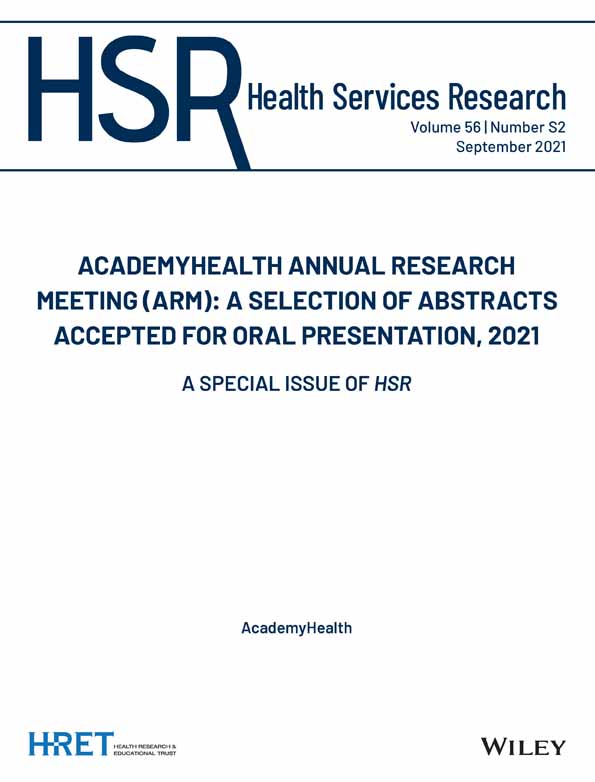Veteran Experiences with Telehealth
Abstract
Research Objective
In FY18-19, VA Office of Rural Health initiated a pilot program to increase access to services in underserved areas by funding 13 telehealth hubs. Understanding Veterans' experiences with telehealth hubs is essential to its delivery, especially in its scale-up nationally and in response to the pandemic in FY20. We examine characteristics and ratings of care among Veterans with telehealth hub visits compared to usual primary care (PC) during the pilot program.
- Understand Veteran experiences with access, care coordination, comprehensiveness and primary care provider (PCP) communication during a telehealth pilot program.
- Examine Veteran characteristics associated with telehealth hub visits during a pilot program.
Study Design
Regression analysis of a cross-sectional data: VA Survey of Healthcare Experiences of Patients – Patient-Centered Medical Home (SHEP-PCMH), which uses Consumer Assessment of Healthcare Providers and Systems (CAHPS) questionnaires to survey Veterans on their healthcare experiences. We derived dichotomous outcomes from SHEP-PCMH composite indices, indicating optimal experiences with access, care coordination, PCP communication, comprehensiveness (based on the percentages of responses that fall in the top category (Always or Yes) and PCP rating (9 or 10 out of 10). Key predictors were telehealth hub v. usual care index visit and proportion of telehealth hub visits in 6 months prior to the index visit. Other covariates included age, gender, race/ethnicity, education, number of PC visits in past year, self-rated overall and mental health, and year of visit. We conducted multivariate logistic regression analyses to predict optimal care experiences, controlling for demographics, healthcare use, health status and year.
Population Studied
Veterans receiving care at VA PC clinics offering telehealth hub visits during FY2018-2019.
Principal Findings
In FY2018-2019, 3201 out of 57,793 Veterans had a telehealth hub index visit. Telehealth hub utilization 6 months prior to index visit: 0.25% usual care v. 83% telehealth. Compared to usual care, the telehealth hub group was significantly older (age ≥ 65: 60% telehealth, 50.5% usual care), had fewer PC visits (0–1 visits: 69% telehealth, 56% usual care). In multivariate models, we failed to detect statistically significant difference between telehealth hub and usual care groups for the composite measures of Veteran experiences. Adjusted Odds Ratio (AOR) (95% CI): 0.68 (0.12–3.81), 0.3 (0.07–1.35), 1.55 (0.48–4.95), 0.47 (0.18–1.22), and 0.66 (0.18–2.49) for access, coordination, PCP communication, comprehensiveness, and PCP rating, respectively. Older age and greater number of PC visits were associated with greater likelihood of optimal care ratings; fair/poor overall and mental health were associated with lower likelihood of optimal experiences.
Conclusions
Compared to usual care, telehealth hub users did not differ in likelihood ratings of optimal care experience although they are distinct in their demographics and healthcare utilization. Further study is needed, since the population of telehealth hub users is quite different from usual care population during pilot program.
Implications for Policy or Practice
Telehealth hub visits were not associated with decrements in care experience. Our findings suggest that Veterans' experiences with tele-health during the COVID-19 pandemic might be similar to usual care. This is of importance since the Covid-19 pandemic necessitates expanded use of virtual care to ensure patient safety.
Primary Funding Source
Department of Veterans Affairs.




